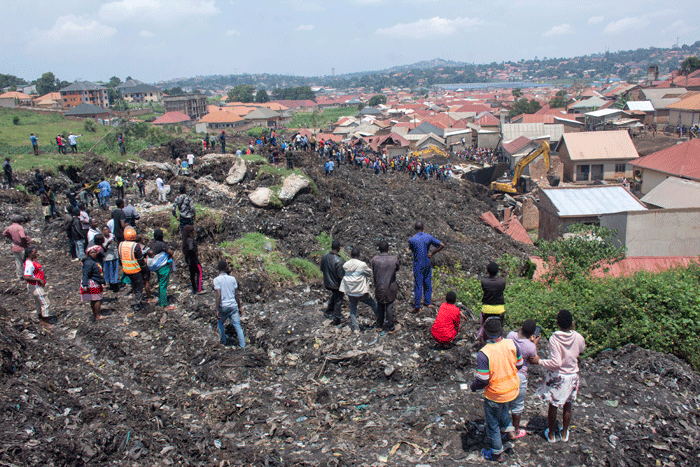Prime
What does ‘change’ mean?

Author: Phillip Matogo. PHOTO/FILE
What you need to know:
- Specifically, a system that protects and promotes the worker as the economy’s backbone by allowing varying levels of gainful compensation for production, while unionisation affords a means for the proletariat to counteract the greed of the rich.
The FDC will ensure citizens are finally able to reclaim their power. The ruling regime has reduced political participation, undermined public institutions, and stifled economic growth. Better governance from the FDC will turn Uganda’s political situation around.”
These words belong to the Forum for Democratic Change’s (FDC) website.
As the party explains how these words will serve praxis, it employs even more familiar wording.
Here, locutions like “restore”, “reduce”, “reform”, “recover”, “eliminate” and “strengthen” explain the FDC’s otherwise historic mission. However, these words also betray the reactive nature of the FDC’s politics. For nowhere do they seek to originate policy.
Instead, their response to National Resistance Movement (NRM) rule is curative. Thereby acknowledging NRM rule as not without merit, but whose merit is meretricious.
Thus, crucially, the change FDC seeks gives us a sense of what we are losing, but not necessarily what we are gaining.
Yet Ugandans need more.
Specifically, a system that protects and promotes the worker as the economy’s backbone by allowing varying levels of gainful compensation for production, while unionisation affords a means for the proletariat to counteract the greed of the rich.
This will underline the force of the economy, with an economy of force. As markets are then freed instead of created, economic progress is mirrored by a political progress which makes it easier to govern than get elected.
True, Douglas Adams, in The Hitchhiker’s Guide to the Galaxy, had a point when he said: “Anyone who is capable of getting themselves made president should on no account be allowed to do the job.”
The logic here being that by the time a given candidate achieves power, s/he has lost their utility to saying and doing everything they loathe just to get elected.
They are emptied of self when elected, and the void becomes the leader. So by the Opposition remaining unelected, we get a chance to experience the virtue of its leadership.
That notwithstanding, elections should serve as sieves separating the wheat from the chaff. Then power, properly checked, must evaluate elected officials on how their civic identity reflects our civic purposes.
One way of doing this would be to adopt a libertarian approach to governance. This approach would guide and guard the rule of law and the consent of the governed.
Going further, such a constitutional republic would separate active citizenship from voluntary compatriotism.
In this way, if Ugandans choose to be citizens, as opposed to having citizenship foisted upon them as a birthright, they will be enjoined by fiat to pay taxes and are eligible for conscription when there’s a national call to arms.
These duties will correspond to a right to vote and hold public office. But should a Ugandan voluntarily opt out of citizenship, they should not be taxed and must be exempt from being conscripted.
Again, they cannot vote or hold public office.
This system approximates political voluntarism, or voluntaryism. And it is premised on political authority (and political participation) being will-based.
This voluntaryism was propounded by theorists like Thomas Hobbes, Jean-Jacques Rousseau and several other thinkers of the German idealist tradition who understood political authority as emanating from a citizen’s civic will.
Indeed, as Ugandans, we are weary of the current political dispensation where our rights have to give way to what is misconstrued as right by leaders who perceive themselves as proprietors instead of custodians of the State.
The FDC and other governments-in-waiting should consider power being mediated by our right to opt out of our civic responsibilities when government is despotic and corrupt, and opt in when the opposite obtains.
Mr Philip Matogo is a professional copywriter
[email protected]


